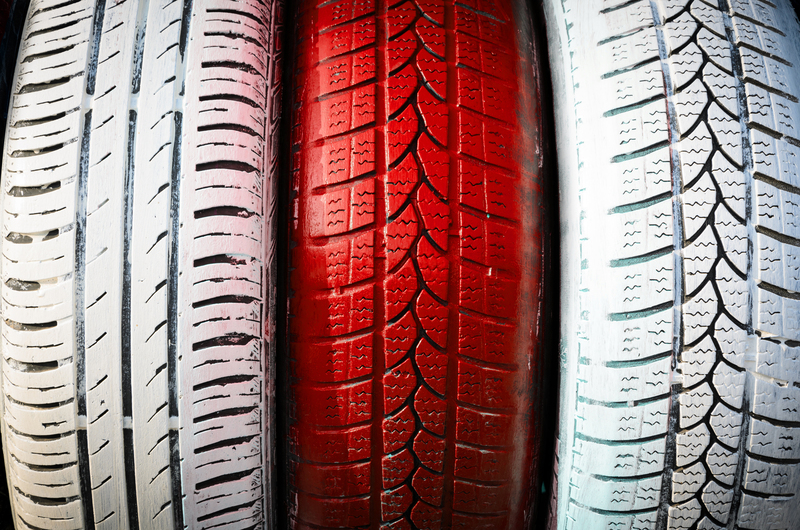Residential Debris Removal
Posted on 25/07/2024
Dealing with home improvement projects, natural disasters, or just cleaning up your space can lead to significant debris accumulation. This debris not only clutters your living environment but also poses potential safety risks. Residential debris removal services offer an efficient, cost-effective solution to keep your home clean and safe.
Importance of Residential Debris Removal
In the wake of a renovation project or after a storm, your property might be littered with debris such as broken tiles, drywall, shingles, and fallen branches. The key to maintaining a safe and aesthetically pleasing home environment lies in prompt and efficient debris removal.

Health and Safety
Leaving debris around can lead to various health issues. Sharp objects like nails and broken glass can cause injuries, and piles of organic material can harbor pests and mold, contributing to respiratory problems. Removing these waste items promptly ensures that you and your family remain safe and healthy.
Compliance with Local Regulations
In most municipalities, there are specific rules regarding debris removal. By adhering to these guidelines, you avoid fines and contribute to your community's overall cleanliness. Hiring a professional debris removal service can ensure that all waste is disposed of according to local laws.
Enhanced Curb Appeal
A debris-free yard significantly improves your home's curb appeal, making it more inviting. Whether you plan to sell your property or just enjoy a well-maintained home, regular debris removal is essential.
Different Types of Residential Debris
Residential debris can be categorized into several types:
Construction Debris
This includes materials like bricks, concrete, wood, and metals from renovation or building projects. It's essential to dispose of these materials properly due to their bulk and potential hazardous nature.
Landscaping Debris
Common in garden or landscaping projects, this includes soil, rocks, trees, and shrubs. These materials can be composted or recycled, contributing to environmental sustainability.
Household Junk
Everyday items like old furniture, electronics, and appliances also fall under residential debris. Many of these items can be recycled or repurposed.
How Residential Debris Removal Services Work
Professional debris removal services typically follow a straightforward process:
Assessment and Quotation
A team will first assess the volume and type of debris you need to be removed. They will then provide a quotation based on their assessment.
Efficient Collection and Disposal
Once agreed, the team will collect and load the debris onto their trucks. They usually sort the materials for recycling or proper disposal to ensure minimal environmental impact.
Clean-Up
A professional service will ensure that your space is left tidy and free from debris after the removal, giving you peace of mind.
Tips for Effective Residential Debris Removal
Plan Ahead
Before starting any project likely to generate debris, plan for its disposal. Rent a dumpster or schedule a debris removal service beforehand to avoid clutter.
Sort Your Debris
Separate recyclable materials like metals and plastics from general waste. This not only aids the environment but can also reduce your overall removal costs.
Hire Professionals
Professional debris removal services have the expertise and equipment to handle various types of waste efficiently. They ensure safety, compliance with regulations, and environmentally friendly disposal.
Consider Alternatives
For small amounts of debris, consider alternatives like donating items in good condition to charity, using curbside pick-up services, or hauling the waste to a recycling center yourself.
Pros and Cons of Residential Debris Removal
Pros:
- Time-Saving: Professional services handle all the heavy lifting, saving you valuable time.
- Safety: Reduces the risk of injuries from sharp or heavy objects.
- Environmental Responsibility: Proper sorting and disposal reduce landfill strain and promote recycling.
- Compliance: Ensures waste is disposed of in line with local regulations.
Cons:
- Cost: Professional services can be expensive, especially for large projects.
- Scheduling: You may need to book in advance, which requires planning.
- Limited by Regulations: Some types of hazardous waste might not be accepted.

Takeaways
Residential debris removal is a critical aspect of maintaining a safe and clean home environment. From health and safety benefits to enhanced property appeal, the advantages are numerous. While DIY options exist, professional services offer unparalleled efficiency and compliance with local regulations. Remember to plan ahead, sort materials, and consider all your removal options to ensure a smooth process.
Conclusion
Efficient residential debris removal is essential for a clean, safe, and appealing home environment. Whether you opt for professional services or a DIY approach, understanding the types of debris and proper disposal methods is crucial. By planning ahead and adhering to best practices, you can maintain a pristine living space, comply with regulations, and contribute to environmental sustainability.
Latest Posts
Recycling for Environment Health
Start Your Plastic-Free Kitchen Journey
Recycling Polystyrene for a Greener Earth






